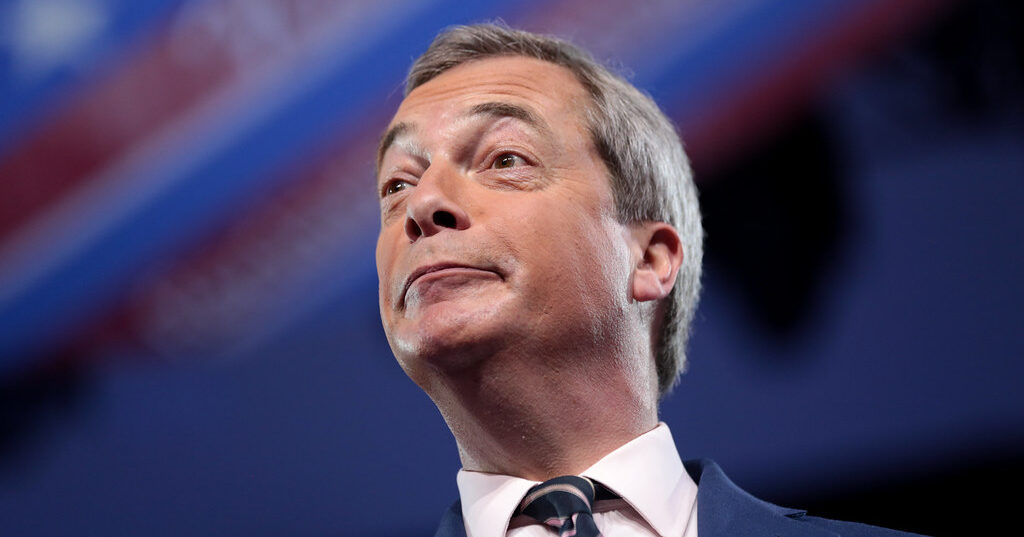

By Jeremy Dewar
IMMEDIATELY AFTER the election, the Tory party descended into internecine warfare. Former housing minister Kemi Badenoch blamed Rishi Sunak for the party’s ‘disastrous’ campaign, while suggesting Suella Braverman was suffering a ‘very public nervous breakdown’. Braverman responded in kind, while James Cleverly called for a ‘sensible post mortem’. Sunak simply resigned.
The root of the rancour was the worst ever Conservative Party election result: 121 MPs and just 23.7% of the vote. They lost a raft of seats to Labour and the Lib Dems and four to Nigel Farage’s Reform party. Former premier Liz Truss and Leader of the Commons Penny Mordaunt were among the big names who fell.
Leadership race
There will now be a leadership election. The choice they face will be whether to claw back Labour’s voters by sticking to a mainstream neoliberal narrative and proving themselves to be a competent official opposition, or to present themselves as a populist party, based on ‘culture wars’ rhetoric, in an attempt to win over Reform voters.
Standing as candidates for the centre ground of British bourgeois politics are likely to be Cleverly and Tom Tugendhat. Continuing in the vein of Sunak and James Hunt, they will argue that the party can be most effective in challenging Labour by sticking to the macroeconomic programme favoured by the banks and investors, but pushing Starmer to the right on immigration and climate change.
The populist right will offer a more robust opposition on these latter questions, while adding an ‘anti-woke’ (i.e. anti-LBGT+) angle. Their opposition to immigration is wider and includes legal as well as ‘illegal’ migration, i.e. more openly racist. As well as Badenoch and Braverman, Robert Jenrick, another failed housing minister, is expected to join the race.
The rightists would certainly be boosted by the re-election of Donald Trump in the US, with whom they could claim to be able to forge a special relationship. But the beating of the National Rally into third place in France would temper such optimism. In reality, it would be a contest about who is best placed to silence and crush Reform.
Where next for Farage?
Reform’s electoral breakthrough is a warning not just to the Tories and Labour but to the entire left. Their 14.3% of the vote may have yielded only five seats, but they came second in 98 constituencies, 89 of which Labour won.
Further below the radar, Farage has built up nearly a million, largely young followers, to his TikTok channel. They will now hope to use the platform parliament affords them and the money that comes to parties with MPs to pursue their goals.
Reform’s manifesto reeked of racism, from blocking migrants’ access to services for five years (during which they pay full taxes) to deporting dual nationality citizens (i.e. second or third generation migrants) after serving custodial sentences, halving foreign aid and penalising companies that employ migrant labour.
Other targets included the LGBT+ community (‘woke ideology has captured our public institutions [with] transgender indoctrination’), environmentalists (‘Scrap energy levies and Net Zero’) and benefit claimants (‘find employment within 4 months or accept a job after 2 offers. Otherwise, benefits are withdrawn’).
Meanwhile they proposed cutting corporation tax to 15%. ‘Red tape’, otherwise known as workers’, consumers’ and environmental protection laws, would be binned and private health companies invited to profit from the NHS.
Added to this, Farage has continued to foster relations with the far right. He heralded the vile misogynist and alleged rapist Andrew Tate as an ‘important voice’ for boys. The fascist Islamophobe Tommy Robinson endorsed Reform’s election campaign.
The success or otherwise of Reform’s attempt to build their base is key to the situation. The longer he can hem in the Tories, the more likely he would be able to eventually divide them—if not at this point, then further down the line.
But his main target will be Labour. As Farage said in his acceptance speech, ‘We’re coming for Labour’. His focus will be on immigration, which Starmer has already conceded is a ‘problem’.
Since refugees and migrants in today’s conditions of war, economic deprivation and climate disasters will certainly continue to flee to countries like Britain, the boats will not stop. Nor will Farage stop whipping up racism with every story of migrants arriving here.
Farage will also continue giving dog-whistles to the far right, encouraging their violent street demonstrations, in the same way Trump used the deadly white supremacist Charlottesville rally in 2017.
We need to confront both Reform and the far right, not least because they will now feel the have the wind in their sails. History shows that the betrayals of reformism boost the far right—unless the left can intervene and mobilise workers and youth for a progressive solution.
If we are to prevent Farage and his supporters from benefiting from Labour’s shortcomings—be that on immigration, housing or the NHS—then we need to come out fighting. Only by challenging Labour on the left can we defeat the threat from the right.